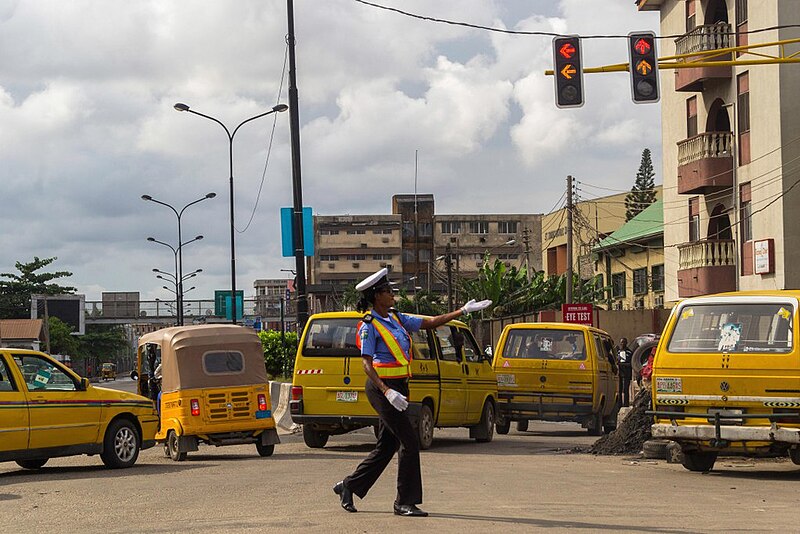Hope or Hardship for Nigeria? Tinubu’s Economic Reforms and their Fallout
Nigeria is grappling with its worst cost of living crisis in nearly 30 years – and President Bola Tinubu, who was praised as a “renewer of hope” just last year, is partially responsible. With deepened poverty and frustration over government inaction leading to public outrage and protests, the country is – once again – at an inflection point. And it needs a stark policy turnaround to face its economic woes.
Like millions of Nigerians, I tuned in to witness President Bola Ahmed Tinubu’s inauguration in May last year, anticipating a speech that would encapsulate the “renewed hope” he had promised during his campaign. Instead, in a single jarring sentence, he announced the abrupt removal of fuel consumption subsidy without adequate compensatory measures. This, and other economic decisions that neglect economic rights, have contributed to Nigeria’s worst cost of living crisis in almost 30 years, pushing millions of people deeper into poverty.
Fossil fuel subsidies delay the urgent transition to renewable energy sources, and, in absolute terms, disproportionately benefit the wealthy. At the same time, for many Nigerians, fuel consumption subsidy has served as a crucial lifeline, making fuel—an essential resource for power, transportation, and the delivery of vital goods and services—more accessible amid daily struggles. To protect people’s rights, the savings generated from phasing out subsidies should be used to compensate people for the inflationary impacts and to transition to an economy that fulfills people’s economic and social rights.
A couple of hours after the announcement, I was driving through the streets of Abuja, Nigeria’s capital, and saw long queues snaking outside fuel stations as people rushed to fill their tanks before prices surged. This was not the “renewed hope” Nigerians had envisioned; it was a wave of panic and uncertainty. The consequences of this decision quickly became painfully evident. Removing the subsidy contributed to inflation surging to 34.19 percent by June of this year with food inflation exceeding 40 percent. Millions of people have been thrust into a desperate struggle to afford necessities in a country where over 80 percent of the estimated more than 200 million people live in poverty.
The President’s measures fall short
The president, who inherited an ailing economy, also liberalized the exchange rate, leading to a sharp depreciation of the Naira that also contributed to the high inflation. He justified these changes as “painful yet necessary” to correct decades of economic mismanagement, pointing out that the fuel subsidy system was among other things rife with corruption that was contributing to draining government finances.
Several months after the government made these changes, the government rolled out plans – including a cash transfer program – to cushion their impact but these measures fall far short of addressing meaningfully the current economic hardship. The cash transfer program announced last October aimed to give out 25,000 Naira ($15) to 15 million people within a three-month period. By December, only 1.7 million people had benefitted from the program, according to news reports.
Nigeria lacks a comprehensive rights-aligned social security system that provides income support for people throughout their lives. While ad hoc programs are at times introduced to address specific crises—such as the economic hardships caused by the Covid-19 pandemic and the present inflation—these initiatives are often insufficient, temporary and reach only a tiny fraction of people.
Inflation has made a recent increase in the minimum wage from 30,000 to 70,000 Naira—achieved through strike action and tough negotiations with labor unions—largely meaningless. The previous wage was already inadequate before inflation took hold, and with prices continuing to rise, the new amount offers little relief.
A lack of transparency and mounting protests
In announcing the removal of fuel subsidies, President Tinubu promised that the funds saved would be redirected to public infrastructure and improving people’s lives. More than a year later, there has been no transparency regarding how much money has been saved or how it is being utilized. Meanwhile, the government’s spending priorities—such as the recent purchase of a presidential jet and plans for a luxury yacht—have sparked public outrage. These priorities reflect a seeming disconnect and paint a troubling picture of the public enduring significant hardship while government officials thrive at their expense.
At the same time, the resulting protest is increasingly met with repression by the government, as is also mirrored in the recent findings of the Transformation Index BTI by the Bertelsmann Stiftung, in which Nigeria’s scores on core-democratic indicators such as “freedom of expression” and “assembly rights” have been regressing continuously over the past years. When people took to the streets in August to protest against escalating economic hardship, for example, the government’s response was not to listen, but to clamp down on dissent. The authorities attempted to disrupt the protests using excessive force and arrested numerous demonstrators, some of whom have been charged with serious offenses, including treason.
Rather than engage with people’s serious concerns for their socio-economic rights, the government responded by further infringing upon their rights. Instead of fostering dialogue and exploring solutions, it displayed an authoritarian streak, seeking to force citizens to accept the harsh realities dictated by its economic policies. This heavy-handed approach has only deepened the divide between the government and the people, alienating those it claims to serve.
Tackling the divide between government and populace
The government should design rights-driven and people-centered policies, ensuring that human rights guide the formulation and implementation of significant policy changes like removing subsidies. It is also important for the government to prioritize transparency and public engagement.
It should establish a clear plan with input from the public about how the subsidy savings will be reinvested in social programs and infrastructure. It should also commit to fostering an environment in which people can freely express their concerns without fear of repression. By prioritizing the needs of the people and actively involving them in policy discussions, the government can begin to rebuild trust and work toward a more equitable future for all Nigerians.

